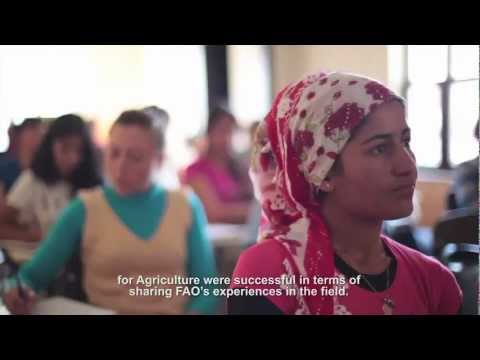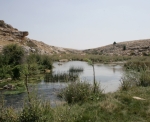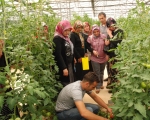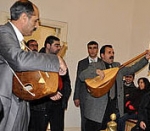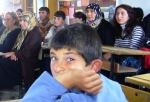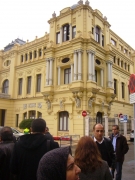

Turkey
Eastern Europe
Turkey
Capital Ankara
Population 76.8 million
Life Expectancy 71.96.9
Access to clean water 97%
Adult literacy 87.4%
Under five mortality 25.78 per 1,000 live births
GDP per head (US$ PPP) $11,900

-
Country Fact Sheet
 This Fact Sheet summarizes the key achievements of the Joint Programmes in Turkey.
This Fact Sheet summarizes the key achievements of the Joint Programmes in Turkey.
Turkey Joint Programmes Fact Sheet.pdf (154 KB)
Our Joint Programmes
Enhancing the Capacity of Turkey to Adapt to Climate Change Turkey is highly vulnerable to climate change. As part of the southern belt of Mediterranean Europe, the country is already facing increased temperature and decreased precipitation trends. The Joint Programme's goal was to develop national capacity for managing climate change risks for rural and coastal development in Turkey by mainstreaming climate change in development frameworks and promoting pilot adaptation projects. Harnessing Sustainable Linkages for SMEs in Turkey’s Textile Sector Although economic and social conditions in Turkey have improved rapidly in the last 10 years, the country still suffers from some key development challenges, including significant regional disparities and high unemployment among youth and women. Targeting small and medium enterprises (SMEs) in the textile sector, the largest and most labour-intensive sector in Turkey, this innovative Joint Programme assisted local businesses to develop sustainable competitiveness and improve working conditions, particularly for women in disadvantaged communities in poor areas. Growth with Decent Work for All Turkey’s impressive economic growth in the last decade has not been matched by a strong growth in job creation. Even though overall unemployment has declined in recent years, the youth jobless rate was more than 18% in 2011, twice the national average, with young women only half as likely to be working as young men. The Joint Programme's goal was to improve job opportunities for women and young people as a way to reduce poverty, with a focus on vulnerable migrant populations in the Antalya region. Alliances for Culture Tourism (ACT) in Eastern Anatolia Provinces of Eastern Anatolia are the poorest in Turkey, with human development levels far below national averages. Some 30% of people in Kars were estimated to be below the poverty line when the Joint Programme was launched there in 2008, almost twice the national average. The Joint Programme mobilized the culture sector in east Anatolia as a way to increase incomes and enhance the sense of a “shared” culture between the people of eastern Anatolia and of neighboring countries, and among people of different faiths.IN THE NEWS
STORIES
There's a village out there
As the famous Turkish folk song goes, “there’s a village out there that is ours, even though we’ve never been there yet...” There are several communities surrounding the very eastern province of Kars that many of even Turkish people haven’t visited yet, but they hold a considerable potential to develop the tourism sector in the entire Kars region.


Transforming Turkish Textiles
Aiming to transform the Turkish textile sector into a competitive industry, a new UN Joint Programme will enhance the international competitiveness of SMEs in the textile and clothing sector of Turkey. Launched in early November, “Harnessing Sustainable Linkages for Small and Medium Enterprises in Turkey’s Textile Sector” will concentrate specifically on SMEs located in poor and vulnerable regions such as Gaziantep, Kahramanmaraş, Adıyaman, and Malatya, the programme and integrate them into the global and domestic value chains, providing job for millions residing in these regions.

